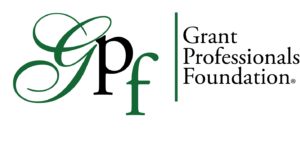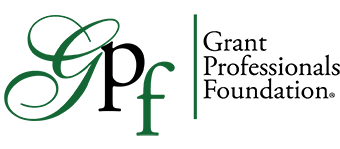Looking Forward to GPA Annual Conference 2016
By Fielding Jezreel, Recipient of a 2015 St. Louis Chapter Conference Scholarship
I should start by saying that the GPA Annual Conference left me rejuvenated and excited to return to work with new contacts across the nation and with a long list of to-dos: demo grant management software systems so I can recommend one to my organization, reach out to those new contacts on LinkedIn and by email, get more involved with the local GPA Chapter, and come up with a 12-month plan for pursuing my GPC.
And as I reflect on the overall conference experience, I’m glad I made time to attend and am grateful for the scholarship I received and the donors that made conference scholarships possible.
One of the last sessions I attended surprised me—the session was not at all what I thought it would be, but like most sessions, there was at least one thing to take home to improve my work. The session covered about a dozen tools, each of which could be integrated into my work but for which I would need to do some significant reading to understand and effectively implement.
Working for a young nonprofit with rapidly evolving strategies and big aspirations means I spend more than my fair share of time anguishing over rushed planning processes and last minute programmatic changes. As the organization grows, focuses, and devotes more time to planning, evaluating, and improving processes, the tools discussed during the Saturday session will contribute to those endeavors.
In the meantime, I have a list of tools that I can begin to explore. Relatedly, I have a challenge to presenters of the GPA Conference 2016, pick your favorite tool or method and dive deep. Show participants how you use a tool or method. Engage participants in an activity that you use in developing some aspect of your grants program or process, be that in a leadership capacity, in the production of proposal components, or in the guidance of your professional direction.
On Thursday of the conference, I attended Beckie Murdock’s “Mapping Concepts for Grant Proposals.” She walked a crowded room through a mind mapping exercise that she uses with community groups to bring a diverse set of community stakeholders to the table to discuss a problem and corresponding solutions. Assigned to work in groups on a particular challenge, Beckie engaged us in “doing” instead of spending her hour and fifteen “telling.” Beckie showed us how we could use mind mapping to guide the production of a grant proposal that reflects the needs of a group and streamlines the implementation process post-award. The delivery of the materials made this session the most memorable of the conference for me.
In case you are thinking about presenting in 2016, I’ll close by offering up a number of tools and strategies that I’d love to dive deep into at the GPA Annual Conference 2016: SWOT analyses, GIVES strategies for Fundraising, Porter’s Generic Strategies, crafting values statements, Return on Investment evaluations, Sustainability Matrices, Hedgehog Concepts, Gantt Charts, Strategic Planning Cycles, and Strategy Screens.
See you in Atlanta!

